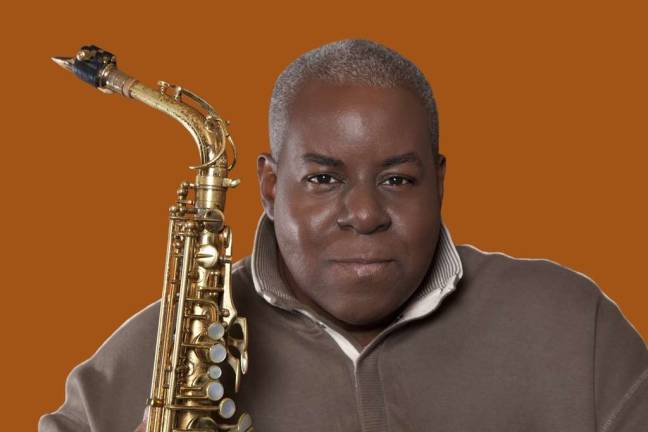Slave music returns to Hudson Valley Underground Railroad route

CAMPBELL HALL — Newburgh Jazz Series presents Tyrone Birkett at the Arboretum at Thomas Bull Memorial Park in Campbell Hall on Wednesday, July 23, from 6:30 to 8:30 p.m.
Tyrone Birkett’s music is a 21st century extension of the freedom songs sung by slaves in the early 1800s. Musically, Birkett revives the Negro spiritual by incorporating jazz sensibilities with soul and gospel. He is a saxophonist and composer whose works are the re-imagining of the freedom song in a contemporary style and substance. He speaks through music to the present circumstances that oppress the disinherited. His is healing music of the mind, soul and spirit in today's world.
“This is one of the most momentous performances of our existence. We are truly going back to the roots of jazz,” said Executive Producer and president of FerryGodmother Productions Aquanetta FerryGodmother Wright.
Birkett's current album, “Postmodern Spiritual: The Promised Land,” attempts to utilize that same strength and hope in order to counter the lack of physical, mental and spiritual liberty that people all over the world still struggle to achieve. It showcases the need to address a different, more hidden type of oppression of today. His music pushes toward self-realization and uplifting of mankind
The Hudson Valley was one of the main arteries of the Underground Railroad. By the early 1800s, "the railroad" was organized with safe houses and procedures to follow along the route. On the railroad, slaves traveled through the Hudson Valley in big numbers and were given passage through the towns of Chester and Goshen to Newburgh. They were sometimes rowed across the Hudson from Newburgh to the vicinity of Beacon, and led from there across Dutchess County. In Newburgh, they were often received and assisted by a musical African-American family named the Alsdorfs.
Brought over from Africa was the tradition of song and dance, seldom used for entertainment but as a part of ritual ceremonies. For Africans new to America, who wanted to escape slavery, songs had an important purpose; they were used to communicate. Songs could serve many purposes including sung for justice. The songs provided rhythm for repetitive chores, express emotions, celebrating important events or help people remember their history not written. Often called spirituals, they were passed from one group to another — along with the songs came the secret code. This code was used by many, including Harriet Tubman, who used it to help elude the slave-catchers. An example is “Wade in the Water,” which she would sing to alert the slaves to get off the trail and get into the water to avoid the slave-catcher’s sniffing dogs.
For more information about this concert and other free community concerts visit www.FerryGodmother.com or call 225 DO-Magic (366-2442).